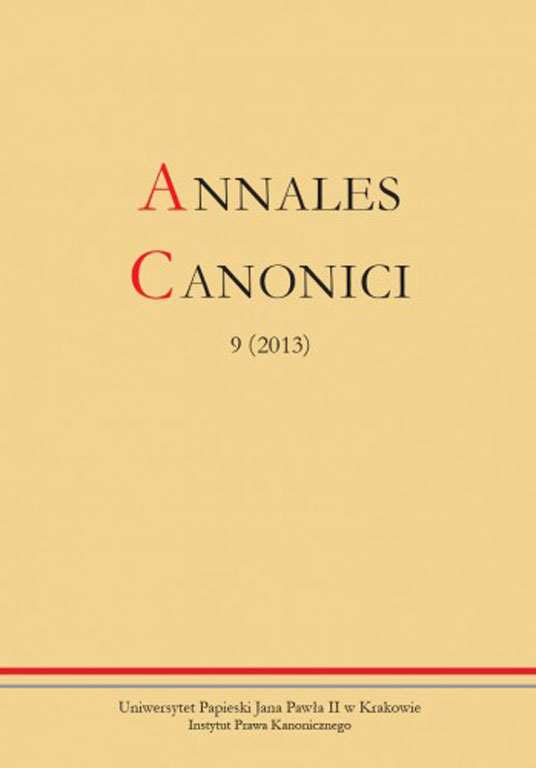Zasady zawierania umowy dzierżawy w Kodeksie prawa kanonicznego z 1983 roku
DOI:
https://doi.org/10.15633/acan.607Parole chiave:
canon law, lease, alienation, particular law, temporal goodsAbstract
Leasing is one way of managing wasteland belonging to the ecclesiastical juridical person. The equivalent of this contract is the payment of rent to lessor. Cannon Law uses regulations connecting with alienation (cc. 1291–1294) to protect the ecclesiastical goods belonging to the juridical person, from the risk of a worse economic condition. The Polish Bishops’ Conference has not developed appropriate standards in connection with cc. 1297, therefore the statutory ecclesiastical right of the juridical person should be retained, in the event of their absence, the particular law established by the diocesan bishop allows for those subordinate to the Church, the power of corporation.
The validity of the lease agreement should include: To observe the civil law in the given country, to obtain the written consent of the relevant authority prior to procedures, in event of alienated goods being divisible, the request for permission for alienation must mention goods previously alienated. The fairness of legal actions includes: to identify a legitimate cause, the valuation of goods alienated, to identify the tenant and his relationship with the administrator of church property and undertake other precautions such as the duration or withdrawal from the lease.
Dowloads
Pubblicato
Fascicolo
Sezione
Licenza
Copyright (c) 2013 Paweł Kaleta

Questo volume è pubblicato con la licenza Creative Commons Attribuzione 4.0 Internazionale.
Autorzy publikujący w czasopiśmie udzielają jego wydawcy zgody o następującej treści:
- Autor zachowuje autorskie prawa majątkowe do utworu, a jednocześnie udziela wydawcy czasopisma zgody na jego pierwszą publikację w wersji drukowanej i wersji online na licencji Creative Commons Uznanie autorstwa 4.0 Międzynarodowe oraz zgody na wykonywanie opracowań, w tym przekładów.
- Autor ma możliwość udzielania zgody niewyłącznej na opublikowanie utworu w wersji, która ukazała się w czasopiśmie (np. zamieszczenia go w repozytorium instytucjonalnym lub opublikowania w książce), wraz z informacją o jego pierwszej publikacji w czasopiśmie.
- Autor może umieścić swój utwór online (np. w repozytorium instytucjonalnym lub na swojej stronie internetowej) jeszcze przed zgłoszeniem utworu do czasopisma.

